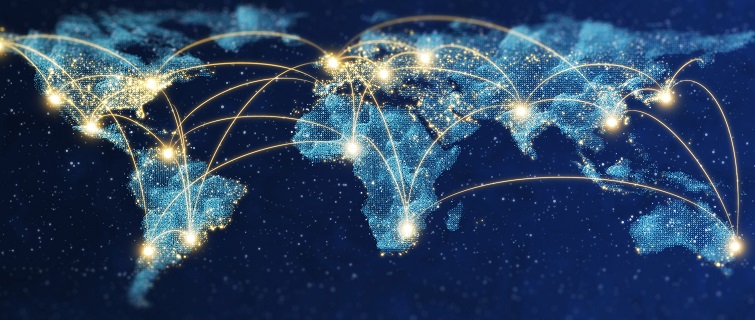
The United Nations estimates that 3.6 billion people, nearly half of the world’s population, currently lack access to the internet. However, in less than a decade, the UN is predicting that almost every person will have safe and affordable access to the internet.
This universal connectivity is expected by 2030, and it is breathtaking to ponder what the world will be like when most are interconnected. Will greater peace, prosperity, education, cultural understanding, transparency, and overall happiness increase, or will universal access to the internet result in more war and violence, less prosperity, no greater access to education, the same levels of corruption, and a world population that is more anxious, isolated, and depressed?
To predict the future, we must first know our past and understand how connectivity has profoundly changed our way of life since the internet took hold in the mid-1980s.
Impact on Physical and Mental Health
As screen time increases each year, the worldwide prevalence of adult and child obesity has nearly doubled since 1980, with vision problems increasing at a staggering rate—e.g., in six-year-olds, the prevalence of short-sightedness was three times higher in 2020 than in 2015.
There is an equally alarming increase in mental illness. The World Health Organization found a 13 percent rise in mental health conditions in the last decade including depression, anxiety, and eating and substance abuse disorders. Rates of depression increased by 52 percent between 2005 and 2017 among adolescents aged 12 to 17, and suicide rates surged to a 30-year high in 2016.
Loss of Human Connection
Societies around the globe are grappling with double-digit increases in struggles with self-esteem, loss of human connection, and a growing disconnect from community, largely due to addictions to devices, social media, online gaming, and online pornography.
Research is showing far less emphasis on human experience and connection due to technological isolation with self-reported declines in spirituality, numbers of friends, and future planning of meaningful experiences.
Transformation of Physical Communities
As more time is spent online, our physical sense of community is transforming—public buildings are slowly disappearing, including banks and post offices. Malls, downtowns, small shops and retail chains, office buildings, and parking garages are not as ubiquitous as they once were. Online shopping is slowly replacing brick-and-mortar stores. The dominance of e-commerce platforms such as Amazon, Alibaba, JD, Pinduoduo, and others is fueling a global trend toward purchasing online the things we used to buy in person and, as a result, causing the dismantling of small stores and the incomes of the people who used to work inside them.
Loss of Privacy
Threats to privacy have reached crisis levels due to endless data protection disasters. The list is endless but includes viruses that destroy data and take down systems, spyware and cyberstalking, GPS location tracking, selling user’s personal information, governmental access to social media accounts without a search warrant, facial recognition software, smart home devices and webcams monitoring personal activity, lax protection of data stored in the cloud, monitoring users’ browsing, and sharing users’ search history to online advertisers.
As billions of global citizens gain access to connectivity in the next 10 years, we must better protect their right to privacy in all digital realms.
Attacks on Truth
Publishing fact is highly valued by traditional news outlets. Unfortunately, this is not the case for social media corporations like Facebook, Instagram, TikTok, Twitter, and YouTube which allow for misinformation to be published on their platforms. Anyone with a social media account can act as a reporter.
All nations—particularly those who are facilitating their citizen’s access to the internet in the next several years—must fight against publishing content that misrepresents fact.
Is There Hope That Connectivity Will Progress Humanity?
While we must remain hopeful that connectivity will progress humanity, we have reached a crisis point as we begin to understand the profound impact that access to the internet has had on our minds, bodies, relationships, children, communities, traditions, and our way of life.
The students I teach in the Master’s in Technology Management program at Georgetown University are up to this seemingly impossible task. They are investigating the potential for harm to individuals and societies, continuous violations of trust, rise of global tech monopolies, and the power that an individual or private firm can wield over one person—or vast billions.
As billions come online in the next decade, we must strive to be the best of ourselves through individual empowerment, cultural understanding, community engagement, activism, conflict resolution, compromise, and positive change in self, community, nation, and world. Our minds and bodies must be healthier, we must aim for more human connection, protect our privacy, and demand that fact and truth are paramount and sacred.
No one can predict the future or what it will look like when the entire human population is connected to the internet, but we can certainly shape the future we want for ourselves and our children.

